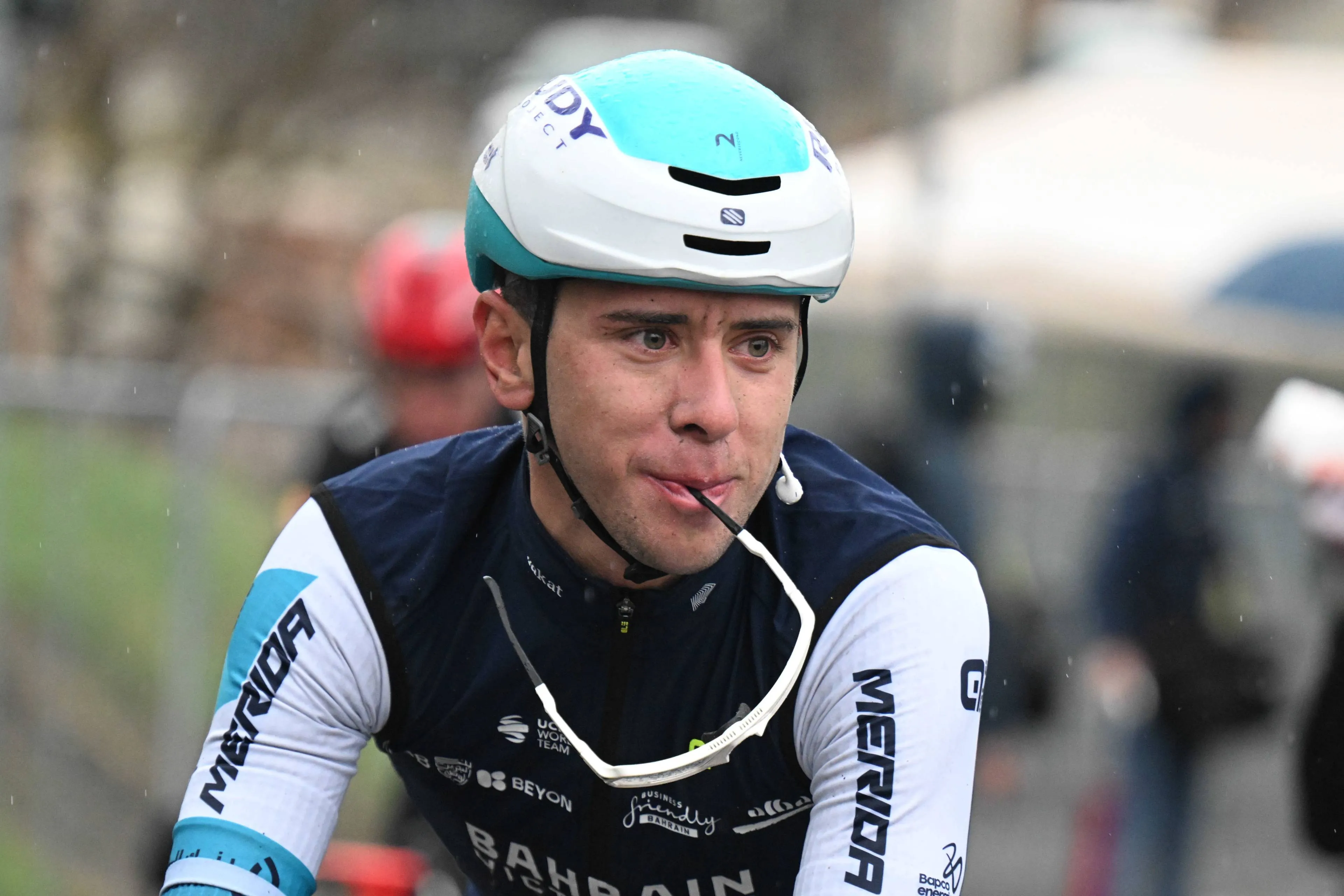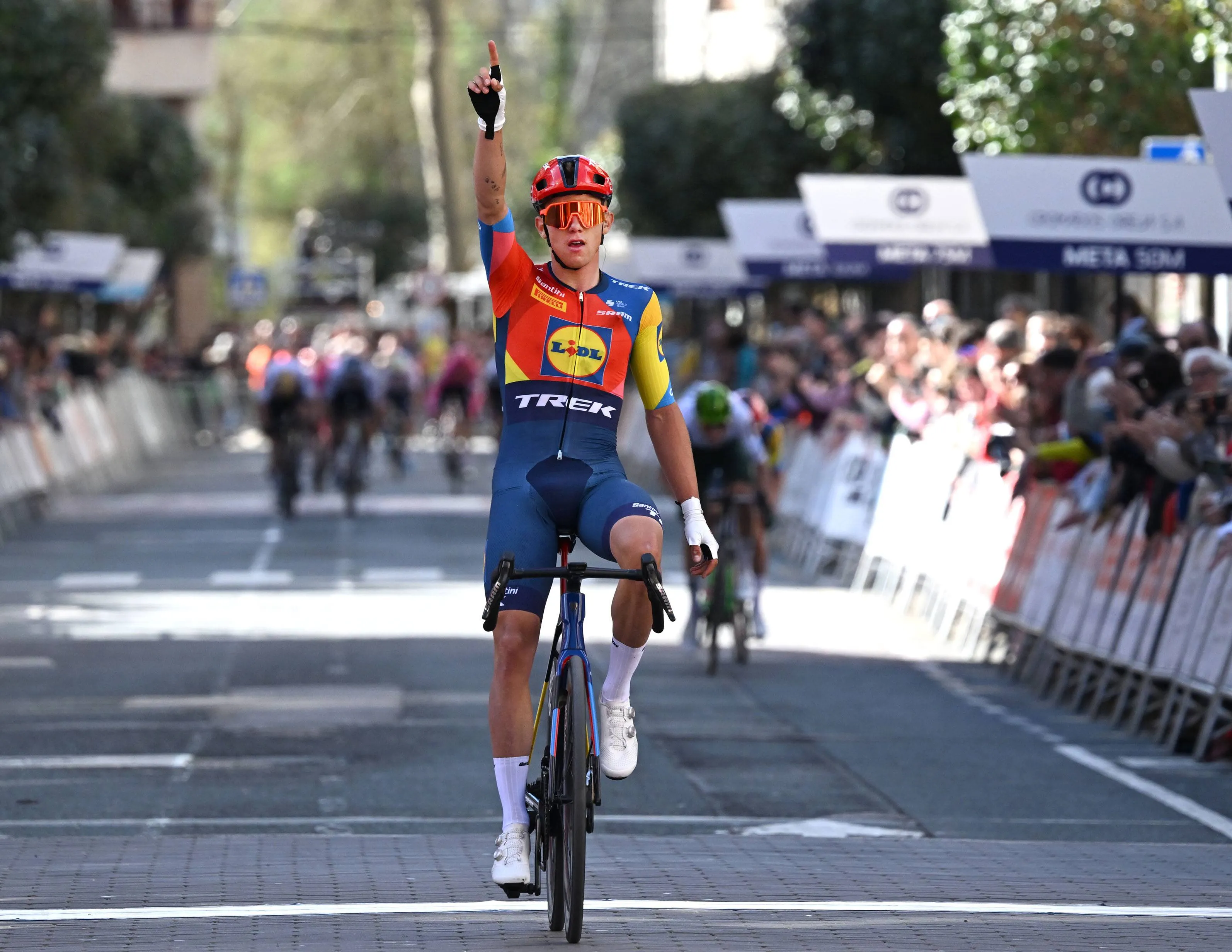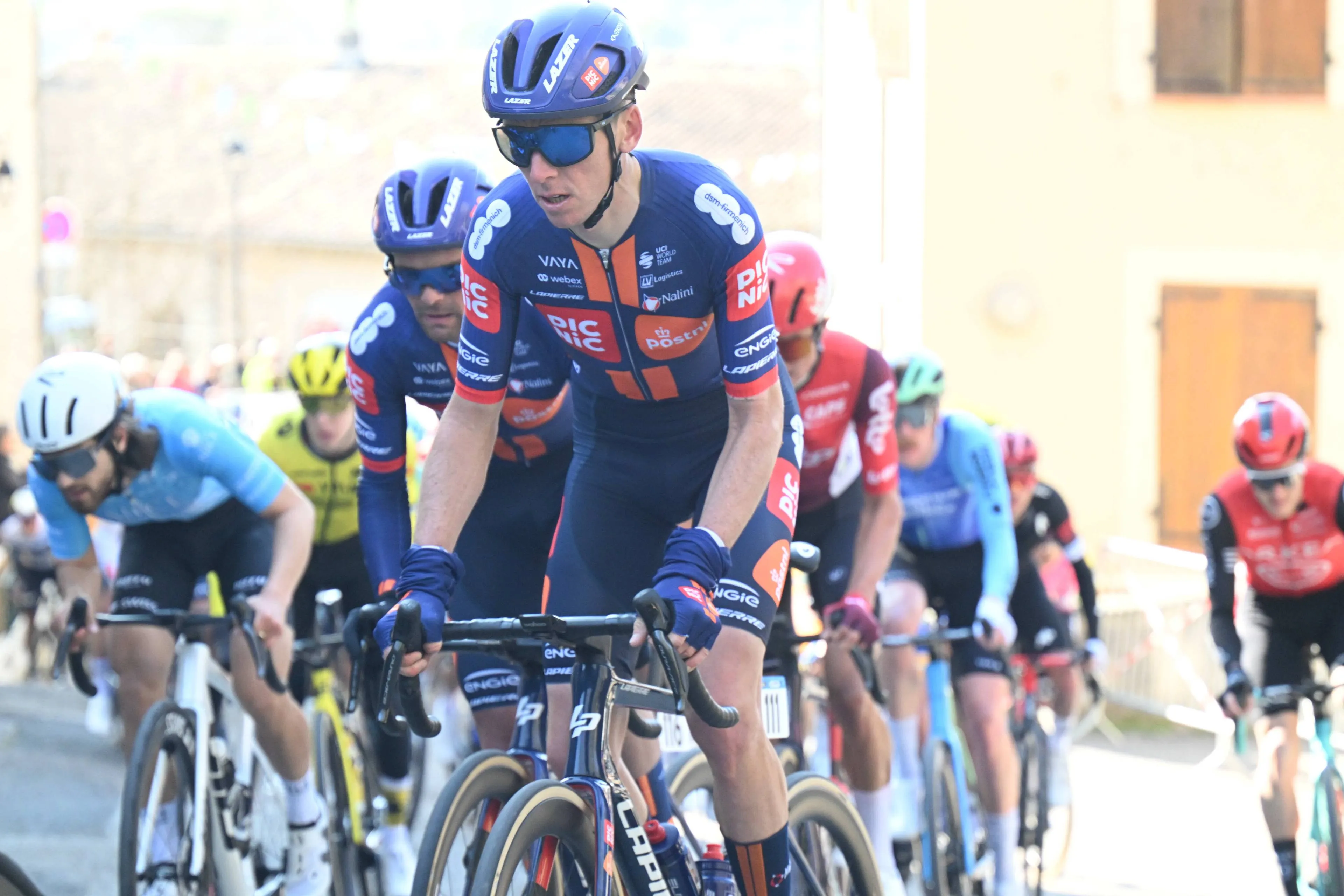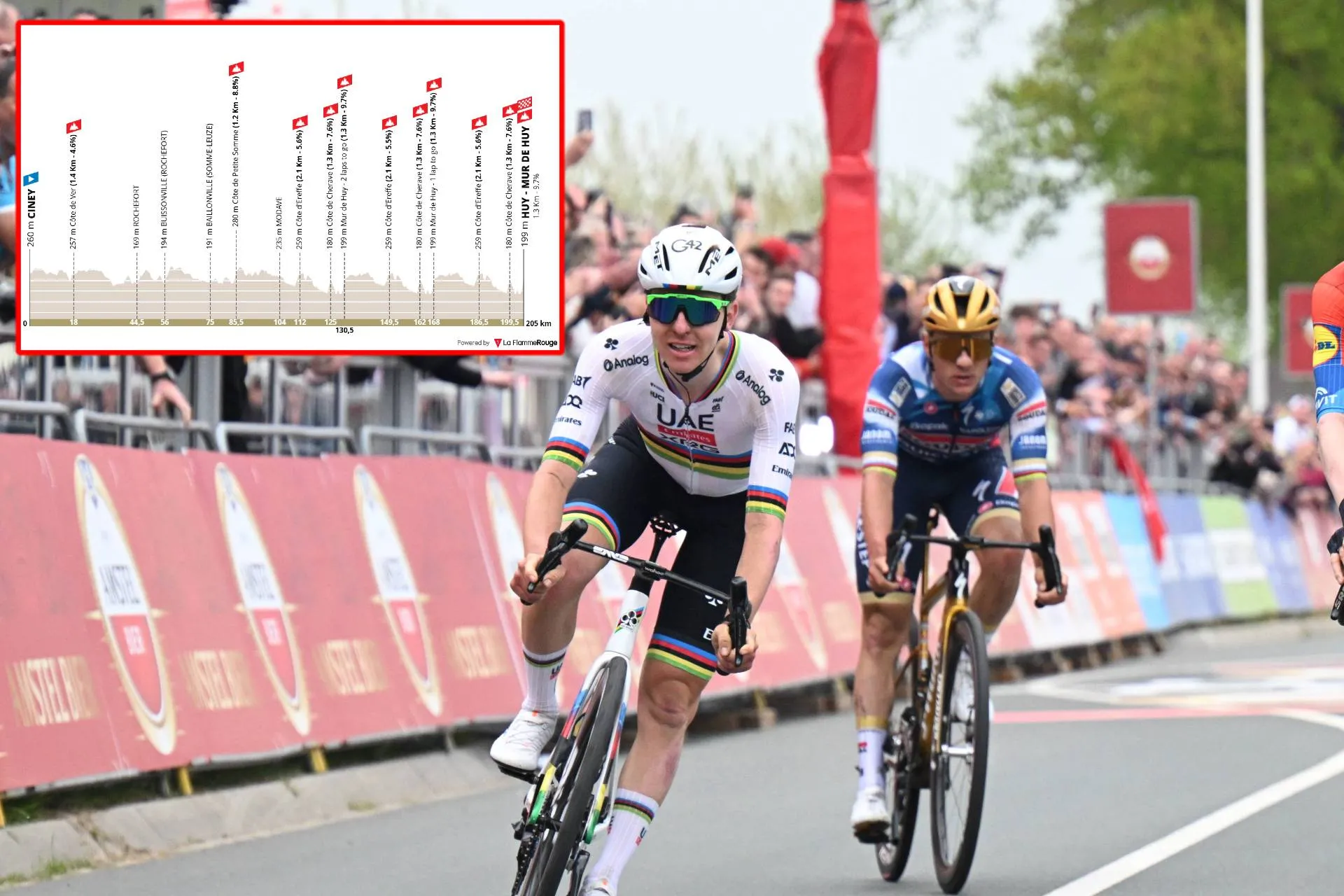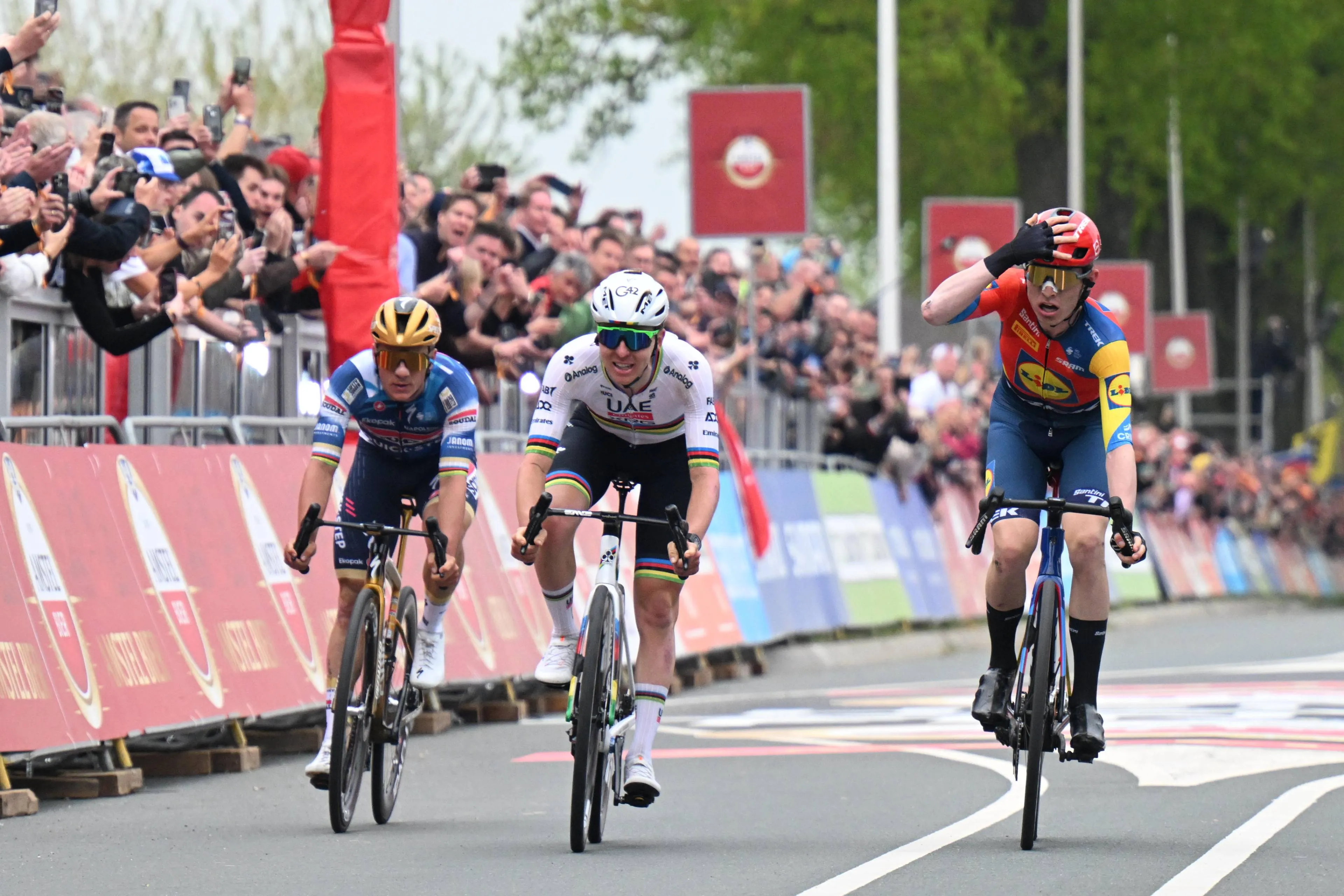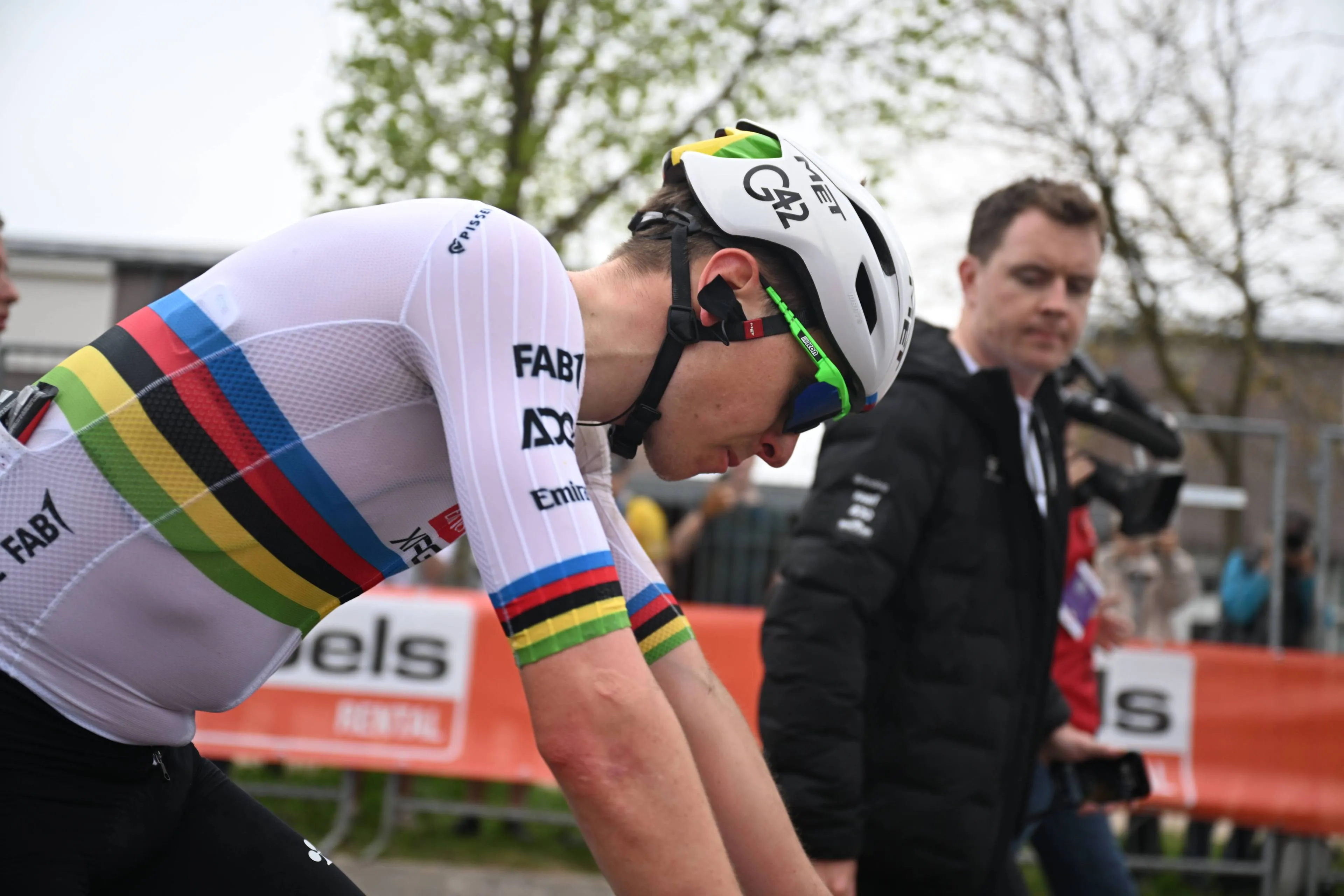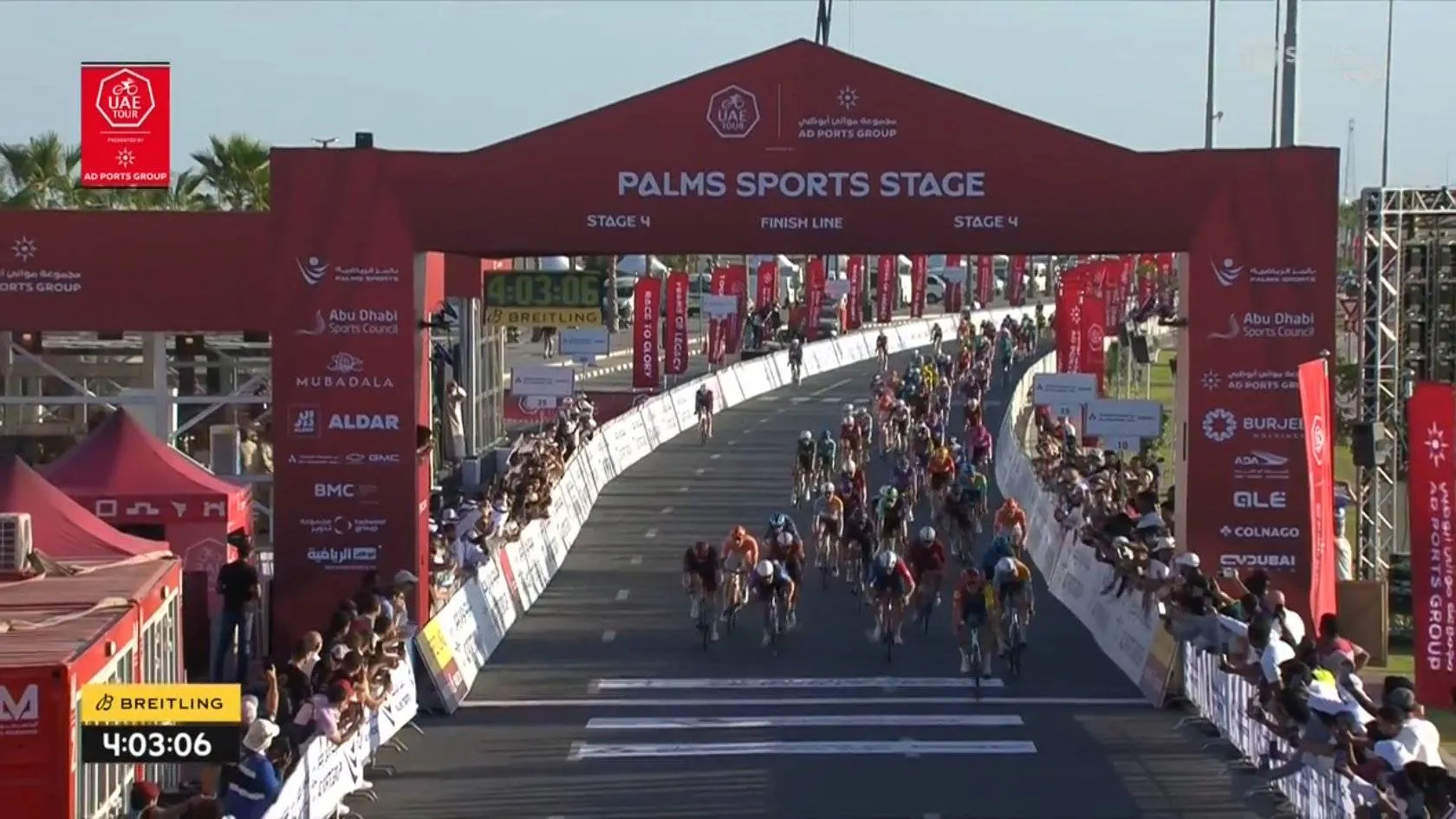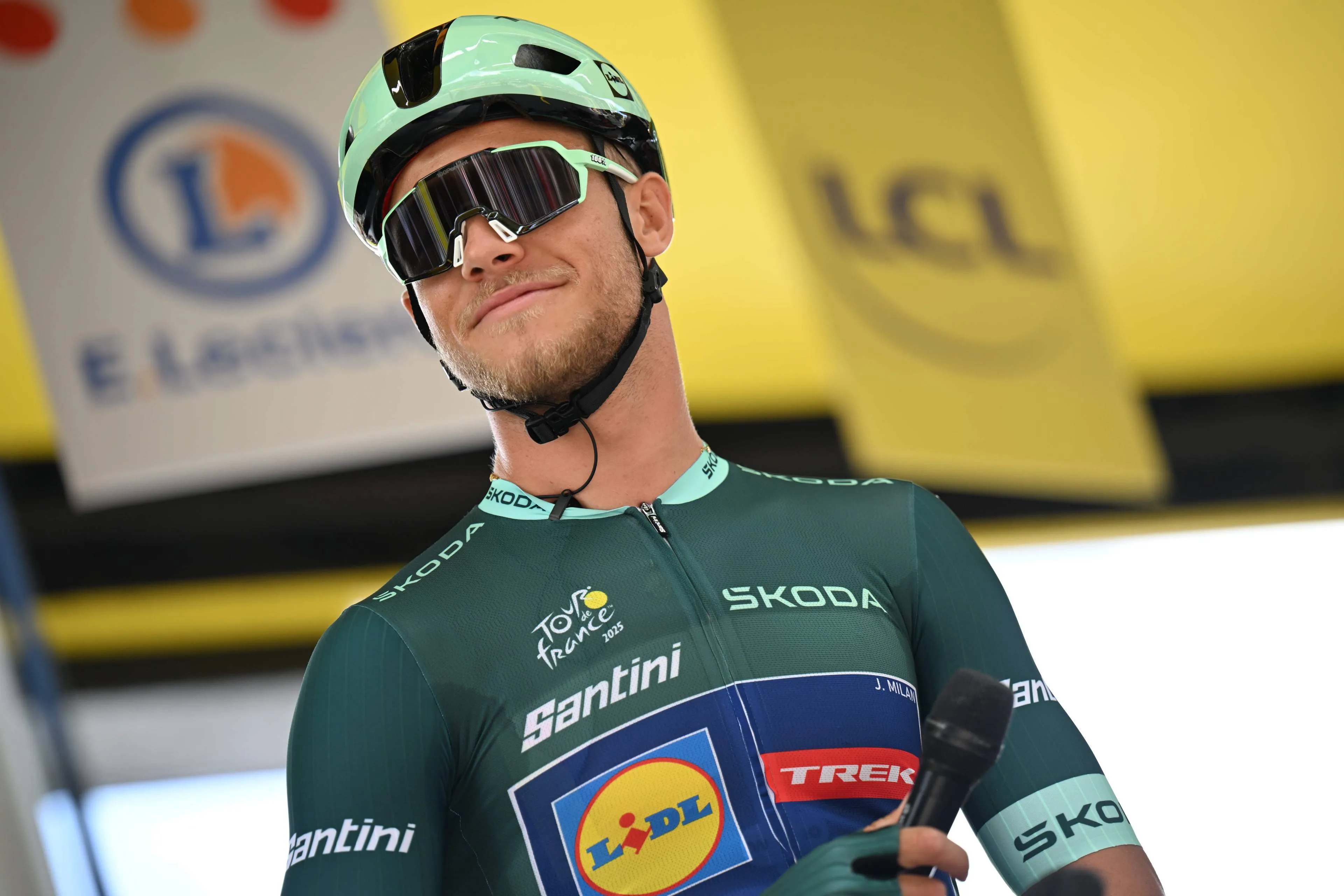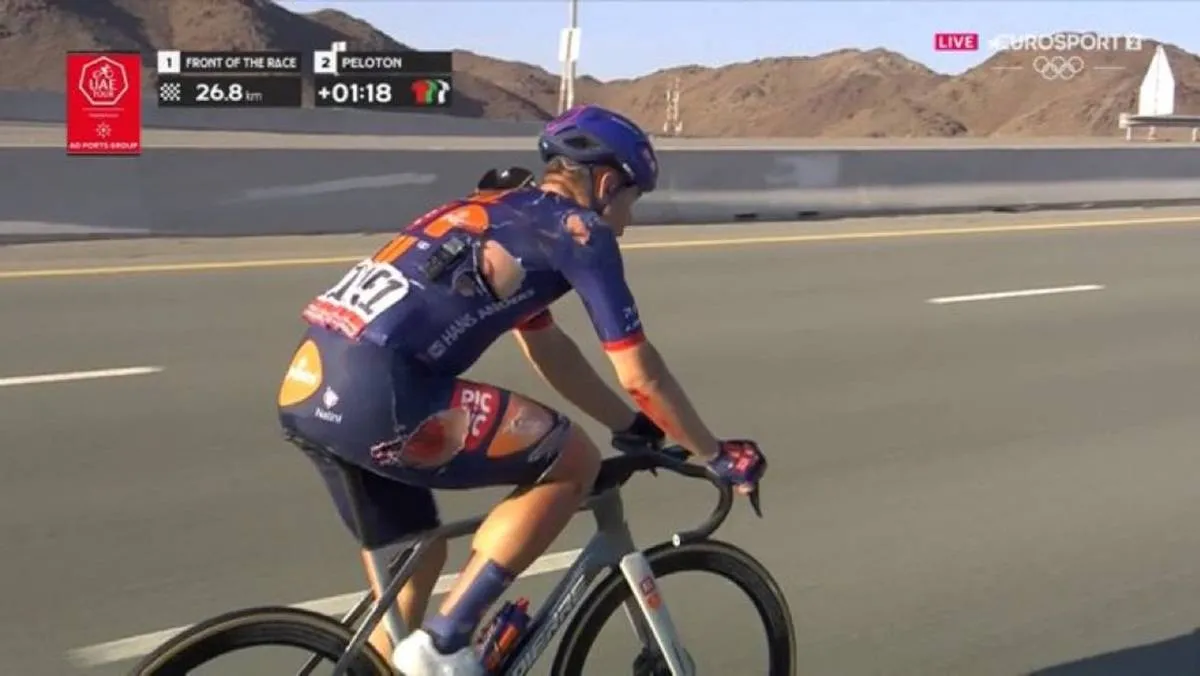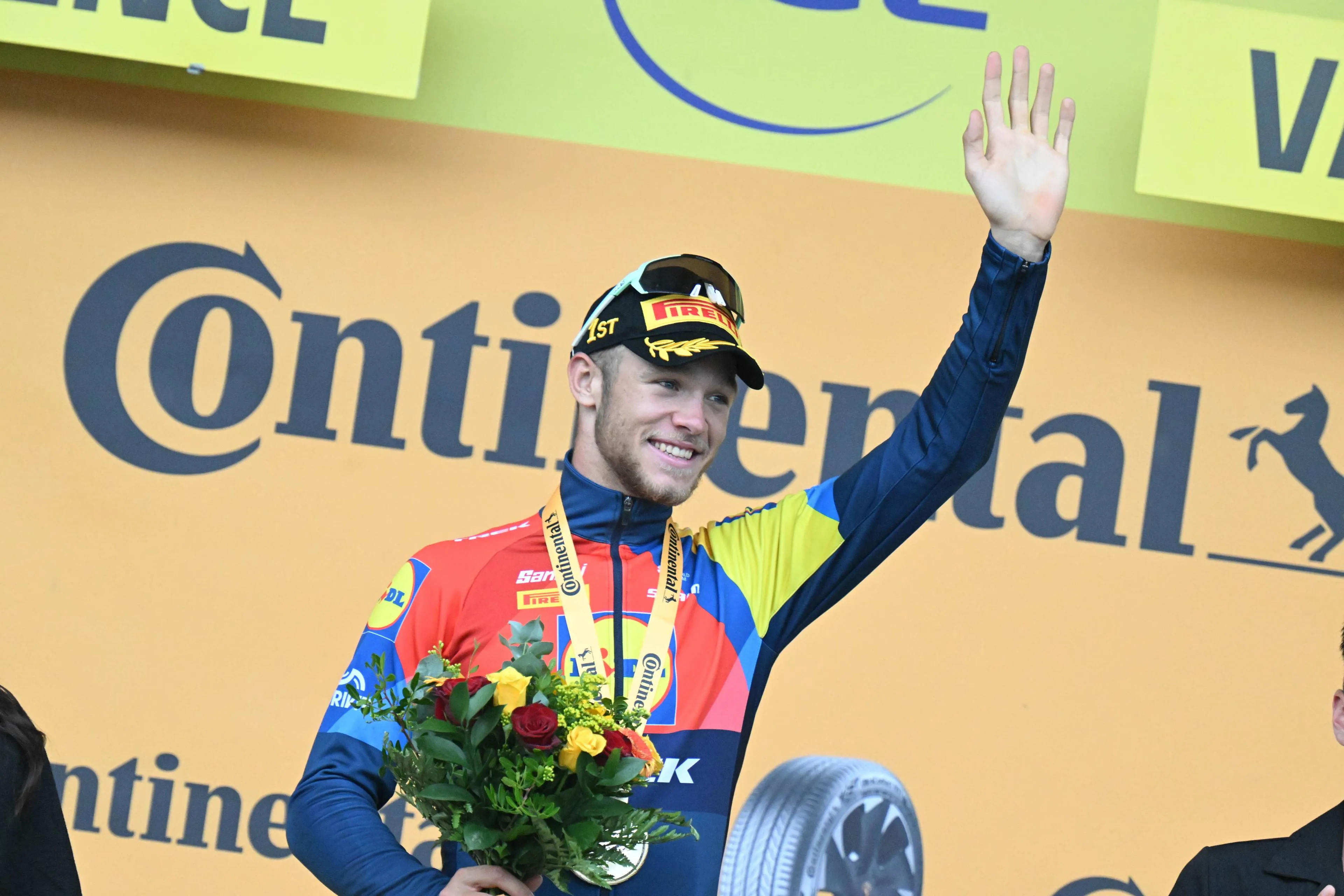OPINION: Tadej Pogacar and cycling were snubbed at Laureus Awards
CyclingTuesday, 22 April 2025 at 18:00
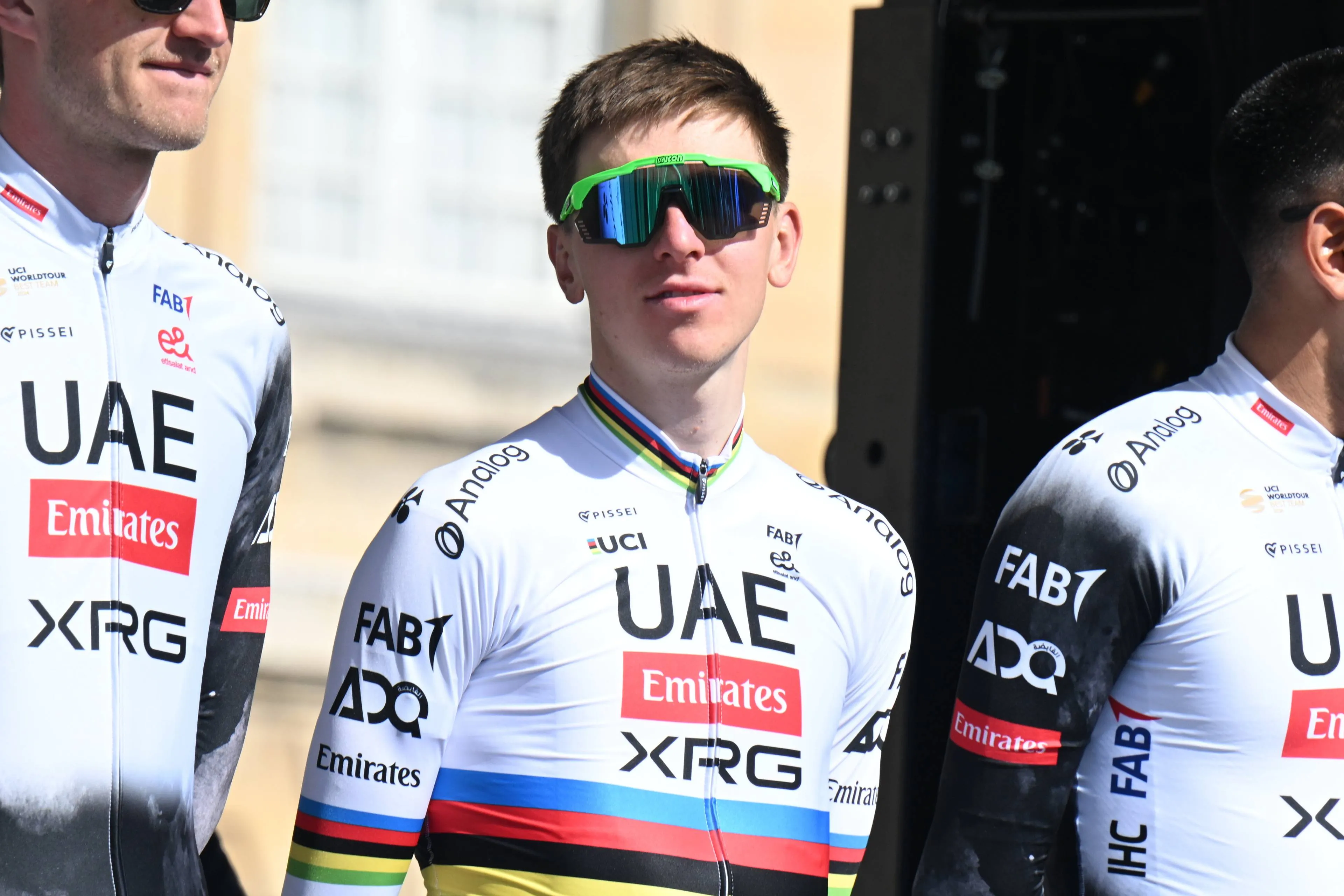
The Laureus World Sports Awards took place yesterday, a
celebration of athletic excellence that, for over two decades, has recognised
the most dominant, inspiring and influential sportspeople on the planet. Often
dubbed the “Oscars of sport,” the awards are meant to transcend disciplines and
reward greatness wherever it appears.
Yet once again, cycling has been left in the shadows.
Read also
Despite delivering one of the greatest seasons the sport has
ever witnessed, Tadej Pogacar failed to win the Laureus World Sportsman of the
Year award. Instead, the prestigious honour went to Sweden’s Mondo Duplantis, a
world record-breaking pole vaulter and reigning Olympic champion.
Duplantis is, by all means, a phenomenal athlete. This
article doesn’t aim to diminish his brilliance, no, he is a deserving winner.
But it does beg the question: how can a season like Pogacar’s go unrewarded on
a stage that claims to celebrate global sporting excellence?
Read also
The season of a lifetime
In 2024, Pogacar wrote his name into the history books with
a string of accomplishments that left cycling fans in awe and pundits
scrambling for historical comparisons. His Giro d’Italia-Tour de France double
was the first in 26 years, a feat last achieved by Marco Pantani in 1998.
Many doubted it could be done in the modern era. The races
are more intense than ever, the depth of talent deeper, and the demands of a
full cycling calendar unforgiving.
But Pogacar didn’t just complete the double, he dominated both races.
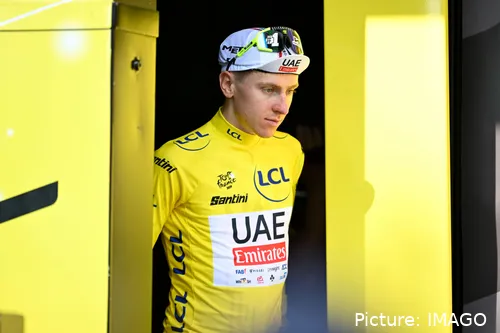
Is Tadej Pogacar's 2024 season cycling's greatest ever?
Across both Grand Tours, he racked up a remarkable 12 stage
victories, seizing control of races in a way rarely seen in the 21st century.
He rode aggressively, often launching long-range attacks and breaking his
rivals with sheer panache. According to Pro Cycling Stats, he spent 91.3% of
his time at stage races in 2024 in the leader’s jersey, a number that defies
belief given the calibre of his opposition.
And even that wasn’t the end.
Pogacar went on to win the World Road Race Championships in
Zurich, donning the coveted rainbow jersey and completing cycling’s mythical
“triple crown” — victory at the Giro, the Tour, and the Worlds in a single
season. Only two riders in history had done so before him: Eddy Merckx and
Stephen Roche. That alone should place Pogačcr’s season among the greatest in
all of sport, not just cycling.
Read also
Throw in victories at Monument classics Liège–Bastogne–Liège
and Il Lombardia, and a podium finish at Milano–Sanremo, and it becomes
increasingly difficult to argue that any athlete had a more complete, varied,
and dominant year in their sport.
Yet despite all this, Pogacar was not the winner of the Sportsman of the Year. It’s not the first
time cycling has been overlooked. In fact, no cyclist has ever officially won
the Laureus Sportsman of the Year award, as whilst Lance Armstrong received it
in 2003, but that was later rescinded in light of his doping admissions. Since
then, cycling has registered five nominations in the category, but no
victories.
Read also
In contrast, tennis leads all sports with a staggering 12
wins, largely due to the unprecedented era of Federer, Nadal and Djokovic.
Athletics and Formula One have also enjoyed regular recognition, and football
too.
So why does cycling keep getting passed over?
A sport still living in its past?
There’s no denying that cycling still carries the scars of
its darker days. The shadow of the EPO era, particularly the 1990s and early
2000s, lingers in the public imagination. Doping scandals like those involving
Armstrong, Jan Ullrich, and countless others sullied the reputation of the
sport for an entire generation.
Even today, despite improved testing and far greater
scrutiny, the association remains. For some mainstream audiences, it’s
difficult to shake the suspicion that what they’re witnessing might not be
entirely clean. Laureus may be reluctant to throw its weight behind a sport
that still, rightly or wrongly, suffers from a trust deficit.

Lance Armstrong still looms over cycling
But how long can the sport continue to be judged by the sins
of its past?
In Pogacar, cycling has a new kind of icon. A rider who
blends natural talent with charisma, humility, and a genuine love for the
sport. He has never been linked to any wrongdoing, has never produced a
suspicious test, and has always conducted himself with openness.
If anything, he represents everything that modern cycling is
striving to be: transparent, exciting, and authentically human.
So of course, he has his doubters anyway.
Read also
A popularity contest?
Then there’s the uncomfortable question of visibility.
Cycling, while massive in parts of Europe, simply doesn’t
have the same global media footprint as tennis, football, or Formula One.
Despite being one of the most physically demanding sports in the world, cycling
struggles to command attention in the US, China, and other key markets where
global awards shows are shaped.
Pogacar’s exploits, while jaw-dropping to fans within the
sport, didn’t dominate headlines in the way a Wimbledon win or the 100m Olympic
final did. And in an era where viral clips, social media reach, and television
exposure count for so much, perhaps the Laureus Awards are tilting more toward
popularity than performance.
Read also
This year’s results seem to reflect that. As deserving as
Mondo Duplantis is, was his 2024 season objectively more impressive than Pogacar’s?
Did he reach deeper into the limits of human performance? Was his
record-breaking vault more significant than winning all three of cycling’s most
important prizes in a single year?
Perhaps I’m being biased as a cycling fan. Even still,
Duplantis has broken the world record 11 times in his career which is of course
stunning, but is it surprising now when he breaks it? No, certainly not as
surprising as it was to see Pogacar dominate in such fashion in 2024.
Read also
Of course, in 2025, we expect Pogacar to win every race he
starts. But in 2024, Pogacar was coming off the back of a 2023 season where he was
crushed by Jonas Vingegaard. Add Pogacar’s comeback in 2024 to his list of accolades,
and surely his season was the more impressive?
That’s open for debate, so leave your thoughts down below.
Recognising greatness or missing it?
It’s hard not to see the Laureus omission as a snub, not
just to Pogacar, but to cycling as a whole. And that’s disappointing, because
the sport deserves more. It demands more from its athletes than perhaps any
other: gruelling training blocks, endless travel, and three-week races where
one bad day can derail an entire season.
Athletes like Tadej Pogacar are not just winners, they’re
artists, tacticians, and survivors. They deserve to be recognised when they
deliver seasons as monumental as 2024.
Read also
Credit must go to Tom Pidcock, who won the Laureus World
Action Sportsperson of the Year for his heroic comeback win in the Olympic
mountain bike cross-country event. His victory was one of the defining moments
of the Paris 2024 Games for Team GB, and proof that cycling talent is breaking
through in other categories.
But for road racing, the grand stage of the sport, the wait
for recognition continues.
The bigger question
If Pogacar’s 2024 season isn’t enough to win the top prize,
then what is?
Read also
A Giro-Tour double, a rainbow jersey, monument classics,
solo attacks that bordered on the mythical, all achieved with flair and grace.
Yet somehow, still not enough.
The Laureus Awards are meant to reflect the pinnacle of
athletic achievement. But in their refusal to acknowledge cycling’s finest
modern ambassador, they’ve raised a troubling question: is it really about
greatness anymore, or just about being seen?
Let us know in the comments, why you think that Tadej
Pogacar was snubbed in the vote.
claps 11visitors 5
Just in
Popular news
Latest comments
- Fabio cannot catch a break.mij19-02-2026
- OK, today is the "air conditioner"... yesterday was a cramp... on saturday a bee will sting him in his tongue... his tongue will swell up and mustafa gets no oxygen. Because of his swollen tongue, Remco won't be able to give us a new excuse. Remco and the spanish rat Ayuso should be on the same team. They both have a ton of excuses and both of them are liars. Ad acta.Mou-Cro-HR19-02-2026
- Florian Lipowitz is secretly happy
 Rafionain-Glas19-02-2026
Rafionain-Glas19-02-2026 - The crucial thing to remember is that Remco was broken by the pace of Gall and Tiberi, not Del Toro's. Remco's excessive antics are because he doesn't want anyone to think that he's 'genuinely' struggling. You can always say 'he got cramps' because 'his preparation didn't go to plan', but the thing is that there is a limit to the number of excuses and exceptions that there can be. Eventually everyone just accepts that he's reached his ceiling on the climbs.
 Rafionain-Glas19-02-2026
Rafionain-Glas19-02-2026 - Bahraini suspicious..Santiago19-02-2026
- The problem is, a British 'boss' opening the gates, when the native workers not wanting them!
 leedorney19-02-2026
leedorney19-02-2026 - Who is overrating him on climbs? Everyone knows since ages it’s his weakness and needed years of work. Question us if he can do enough about it. For sure he won’t be able to improve his TT enough to compensate.Mistermaumau19-02-2026
- What do you call only seeing someone’s positives?Mistermaumau19-02-2026
- Remco banging his leg, just like he banged his saddle when pog dropped him. He ain't fooling anyone with those antics. I'm not a hater, but he's a bit overrated on serious climbs.Santiago19-02-2026
- Obviously isn’t learning from the Epstein fallout. The more you unravel the past the more undiscovered mess appears.Mistermaumau19-02-2026
Loading
Write a comment


